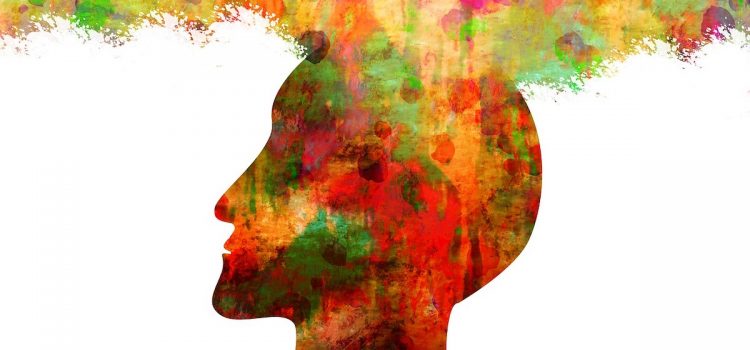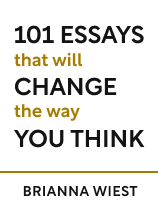

This article is an excerpt from the Shortform book guide to "101 Essays That Will Change the Way You Think" by Brianna Wiest. Shortform has the world's best summaries and analyses of books you should be reading.
Like this article? Sign up for a free trial here .
How do your thoughts impact your life? Can you really manifest the life you want with your thoughts alone?
To understand the effect your thoughts have on your life and your well-being, you first need to grasp one key idea: There’s no such thing as an objective experience. In other words, there’s no one “right” way to interpret your experiences. In some sense, you can actually manifest your life experiences with your thoughts.
Here’s how our thoughts create our reality.
Your Thoughts Determine How You Interpret Everything
No life experience has inherent qualities of its own—such as being good, bad, right, or wrong. You only assign these values to them because of the way you think about and interpret them. Therefore, it’s not your experiences that determine how you feel, but your thoughts about these experiences.
| How Our Thoughts Create Our Reality While many self-help authors mirror Wiest’s view that your thoughts determine how you interpret experiences, Norman Vincent Peale (The Power of Positive Thinking) takes this idea one step further. He claims that your thoughts aren’t only a response to your experiences, but are also the cause of your experiences. He explains that your thoughts during an experience determine how you react to it. This reaction shapes how subsequent experiences play out. For example, consider how your thoughts during a heated discussion shape what happens next. When you think the other person is trying to upset you, you feel wronged and react defensively or aggressively—the discussion then turns to conflict. On the other hand, when you think the other person is simply expressing their opinion, you don’t take their words personally and find it easier to respond rationally. This helps ease the tension and keep you and the other person on friendly terms. |
Feedback Loops Reinforce Your Thoughts and Feelings
Additionally, Wiest argues that it’s difficult to change the way you think and feel about what happens to you. This is because your thinking patterns lock you into a feedback loop that reinforces the way you interpret your experiences.
The following five-step process illustrates how feedback loops reinforce your thoughts and feelings:
- Your state of mind influences what types of thoughts you have. For example, you’re experiencing stress so you have worrisome thoughts.
- Those thoughts influence the way you feel. Your worrisome thoughts make you feel anxious and this increases your stress levels.
- Your feelings determine what you pay attention to. Your feelings of anxiety compel you to focus disproportionately on things that are going wrong in your life. As a result, you engage in more worrisome thoughts and further increase your stress levels.
- What you pay attention to determines how you interpret and judge your experiences. Your focus on what’s going wrong in your life leads you to judge your experiences as difficult or problematic—because it blocks you from perceiving what’s going well in your life.
- Your judgments reinforce how you feel, what you think, and your state of mind. Because you’re judging your experiences as problematic, you continue to feel anxious and you believe that you have a reason to experience stress. As a result, you continue to interpret everything that happens from this negative perspective.
Your Thoughts Shape Your View of the Past and Future
Wiest claims that this process of interpretation isn’t limited to the present moment. Your thoughts also impact the way you experience memories of the past or expectations for the future—because you project your current state of mind onto whatever you think about. This explains why your feelings about the past or future often fluctuate depending on your current mood.
(Shortform note: The psychological term “mood-congruency” explains why memories and expectations change according to your mood. You rely on your imagination to construct your memories and expectations. However, your emotions and imagination are inextricably linked—meaning that your current emotions determine the emotional content of your recollections or expectations.)

———End of Preview———
Like what you just read? Read the rest of the world's best book summary and analysis of Brianna Wiest's "101 Essays That Will Change the Way You Think" at Shortform .
Here's what you'll find in our full 101 Essays That Will Change the Way You Think summary :
- Why the only way to make yourself feel better is to change the way you think
- How social conditioning influences the way you unconsciously think
- How to manage your thoughts and feelings about yourself and your experiences






